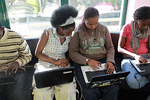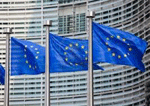Published on Wed, 2014-10-29 15:10
RightingFinance has released a human rights audit of the report by the UN Intergovernmental Committee of Experts on Sustainable Development Financing. In their assessment, members of the Initiative said that the centrality of human rights and equality should not only permeate the new development goals agreed in 2015, but also the full range of means to finance them. The Committee, comprising 30 experts nominated by regional groups, was created by the UN the General Assembly pursuant to one of the agreements in the United Nations Conference on Sustainable Development (Rio+20). The Committee had the mandate to assess financing needs, consider the effectiveness, consistency and synergies of existing instruments and frameworks, and evaluate additional initiatives, with a view to preparing a report proposing options on an effective sustainable development financing strategy to facilitate the mobilization of resources and their effective use in achieving sustainable development objectives. |
Published on Fri, 2014-10-24 11:27
With no concrete increase in financing for biodiversity in sight, concerns are growing that most developed countries are retreating from their commitment to provide financial resources to developing countries. At the 12th Meeting of the Conference of the Parties (COP 12) to the Convention on Biological Diversity (CBD) that was held on 6-17 October 2014, in Pyeongchang, Republic of Korea, the target for international financial resource flows from developed to developing countries was a thorny issue that had to be resolved at the ministerial level. |
Published on Fri, 2014-10-24 10:03
In Kenya InfoNET seeks to improve public service delivery and participation through the strategic use of Technology InfoNET participated in tweet sessions where live tweets were beamed on screens and responded to in real time, for transparency that seeks to improve public service delivery through the strategic use of Technology. |
Published on Thu, 2014-10-23 18:05
The proposed European Commission (EC) has just been approved by the European Parliament (EP) in Strasbourg. The current Commission consists of only nine women out of 28 which is no progress in comparison to the outgoing Barroso Commission. “Before Jean-Claude Juncker was appointed president of the EC, he promised a modern and a female Commission. Unfortunately, this Commission is miles away from being a female Commission and is clearly not a mirror of European society, of which more than half of the population is female and much more diverse,” says Joanna Maycock, Secretary General of the European Women’s Lobby (EWL). Since its establishment, the EWL has demanded parity in all EU institutions and asks Member States to nominate one female and one male candidate for the College of Commissioners. For the EWL, it is a question of justice and fairness, as advocated in its 50/50 campaign with the title: “No modern Democracy without Gender Equality”. |
Published on Thu, 2014-10-23 08:15
A recent report found the World Bank’s private sector arm, the International Financial Corporation (IFC), has indirect exposure through one of its equity investments in financial intermediaries to human rights abuses associated to a Honduran agribusiness company. The report’s troubling findings should be cause for concern regarding the limits to due diligence in the behavior of private financial firms funded by public institutions such as the IFC. |







